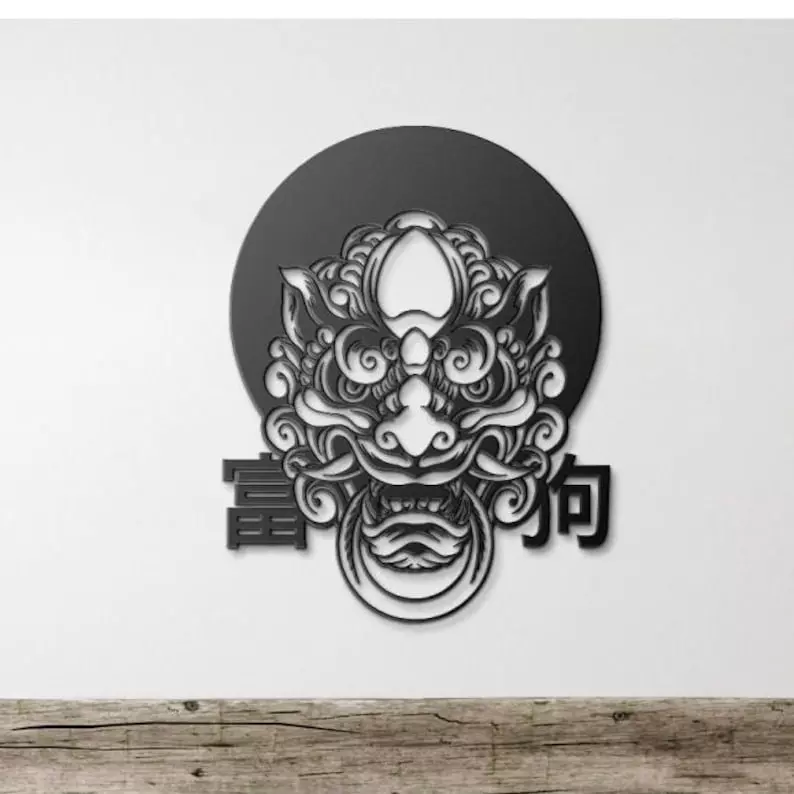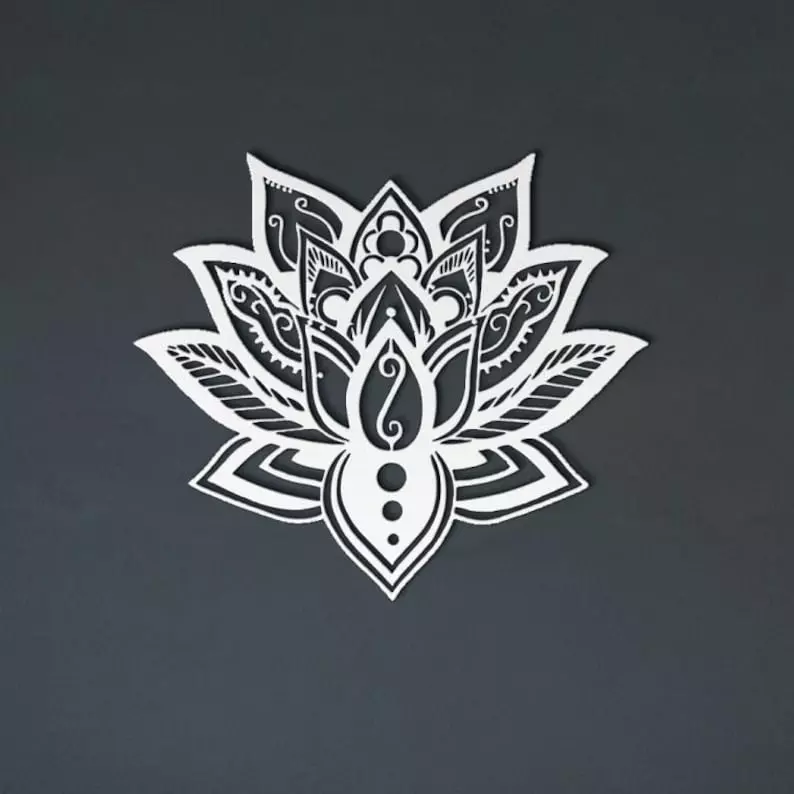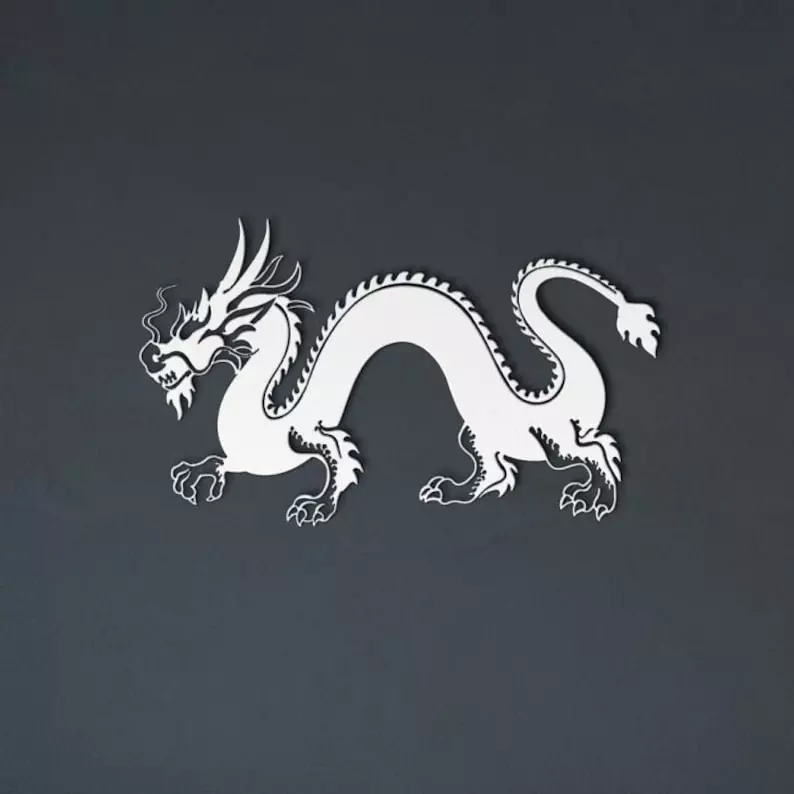Feng Shui, the ancient Chinese philosophy known as the art of placement, has long been revered for its ability to create harmony and balance in our living spaces. This intricate practice is grounded in the belief that our surroundings have a profound impact on our well-being, success, and overall quality of life. Central to Feng Shui are its powerful symbols and elements, which play a vital role in achieving this equilibrium.
Understanding Feng Shui
At its core, Feng Shui is about aligning our environment – whether it be a home, office, or any other space – with the natural forces of the universe. By doing so, we can maximize the flow of vital energy, or Qi, which is believed to enhance our health, wealth, and relationships. Pronounced "fung shway," Feng Shui literally translates to "wind" (Feng) and "water" (Shui) – two elements that are essential to life itself.
 Image: Unlocking the Mysteries of Feng Shui and its Powerful Symbols
Image: Unlocking the Mysteries of Feng Shui and its Powerful Symbols
Key Principles of Feng Shui
Feng Shui encompasses several key principles that are integral to its practice. One such principle is the Bagua, a tool used to map out the energy flow within a space. Consisting of eight areas, each representing a different aspect of life, such as career, wealth, health, and relationships, the Bagua helps us optimize the energy in our environment.
 Image: Feng Shui
Image: Feng Shui
Feng Shui also relies on the five elements – wood, fire, earth, metal, and water – to create balance. Each element possesses specific characteristics and attributes, and their interplay can influence the energy of a space.
The balance of opposites, known as yin and yang, is another crucial aspect of Feng Shui. Yin represents passive, feminine, and dark qualities, while yang symbolizes active, masculine, and light qualities. Striking a harmonious balance between these forces is essential for creating a well-rounded environment.
 Image: Feng Shui
Image: Feng Shui
Feng Shui Symbols
Feng Shui incorporates a wide array of symbols, each with its unique meanings and purposes. These symbols are often used as remedies to enhance or adjust the energy of a space. Let's take a look at some of the most common Feng Shui symbols:
- Yin-Yang: The classic symbol of balance and harmony, the yin-yang represents the interconnectedness of opposites. It is used to bring equilibrium to an environment, promoting harmony and synergy.
 Image: Unlocking the Mysteries of Feng Shui and its Powerful Symbols
Image: Unlocking the Mysteries of Feng Shui and its Powerful Symbols
- Bagua Mirror: This concave mirror is often placed above the front door to deflect negative energy away from the home. It acts as a protective barrier, ensuring that only positive energy enters.
 Image: Unlocking the Mysteries of Feng Shui and its Powerful Symbols
Image: Unlocking the Mysteries of Feng Shui and its Powerful Symbols
- Dragon and Phoenix: The dragon symbolizes power and strength, while the phoenix represents rebirth and transformation. Placing these symbols in your space can boost your career and relationship luck.
 Image: Unlocking the Mysteries of Feng Shui and its Powerful Symbols
Image: Unlocking the Mysteries of Feng Shui and its Powerful Symbols
- Fu Dogs: These traditional Chinese guardian lions are often placed at entrances to protect the property from negative energy and intruders. They symbolize courage and protection.
 Image: Unlocking the Mysteries of Feng Shui and its Powerful Symbols
Image: Unlocking the Mysteries of Feng Shui and its Powerful Symbols
- Lucky Bamboo: A popular houseplant in Feng Shui, lucky bamboo is believed to bring good fortune and positive energy. Its flexibility represents resilience, while its upward growth is associated with progress and growth.
 Image: Unlocking the Mysteries of Feng Shui and its Powerful Symbols
Image: Unlocking the Mysteries of Feng Shui and its Powerful Symbols
- Chinese Coins: Chinese coins, tied together with a red ribbon, are used to attract wealth and abundance. They are often placed in wealth sectors or carried as a talisman.
 Image: Unlocking the Mysteries of Feng Shui and its Powerful Symbols
Image: Unlocking the Mysteries of Feng Shui and its Powerful Symbols
- Wind Chimes: Wind chimes are believed to disperse negative energy and promote the flow of positive energy. Their gentle, melodious sounds are said to enhance the overall atmosphere.
 Image: Unlocking the Mysteries of Feng Shui and its Powerful Symbols
Image: Unlocking the Mysteries of Feng Shui and its Powerful Symbols
How to Apply Feng Shui Principles in Your Home: Top Tips and Pitfalls to Avoid
If you want to create better energy flow in your home, incorporating Feng Shui principles can make it happen. Here are some top tips and pitfalls to avoid:
-
Strategically Place Key Furniture: Ensure that your bed, desk, and stove are positioned in a commanding arrangement within each room. This encourages positive energy and better flow.
-
Focus on Your Entryway: The entryway serves as a vital point in Feng Shui. Pay extra attention to this space to welcome good energy into your home.
 Image: Unlocking the Mysteries of Feng Shui and its Powerful Symbols
Image: Unlocking the Mysteries of Feng Shui and its Powerful Symbols
-
Activate Your Front Door: Your front door is a gateway for energy. "Activate" it by making it welcoming and free from obstacles to invite positive vibes.
-
Optimize Your Bed Placement: The position of your bed plays a crucial role in Feng Shui. Make sure it aligns with principles that promote relaxation and harmony.
 Image: Unlocking the Mysteries of Feng Shui and its Powerful Symbols
Image: Unlocking the Mysteries of Feng Shui and its Powerful Symbols
- Utilize a Bagua Map: Employ a Bagua map to map out the energy flow within your home. This tool helps identify key areas associated with various aspects of life and balance the energy accordingly.
 Image: Unlocking the Mysteries of Feng Shui and its Powerful Symbols
Image: Unlocking the Mysteries of Feng Shui and its Powerful Symbols
-
Incorporate Elemental Colors: Choose colors for your decor based on the five elements to harmonize your living space and its energy.
-
Prevent Negative Energy: Block doors that lead to nowhere or create a sense of insecurity, as they can contribute to negative energy.
-
Avoid Broken Objects: Leave out broken or damaged items. These can disrupt the flow of positive energy and should be removed or repaired.
By following these tips and avoiding common pitfalls, you can effectively apply Feng Shui principles to your home, fostering a more harmonious and balanced living environment.
 Image: Unlocking the Mysteries of Feng Shui and its Powerful Symbols
Image: Unlocking the Mysteries of Feng Shui and its Powerful Symbols
What People Usually Ask About Feng Shui
1. What is the Literal Meaning of Feng Shui?
Feng Shui, in its literal translation, means "the way of wind and water." With its origins in early Taoism, Feng Shui extends its influence not only throughout China but also to Western cultures. It is deeply rooted in the Taoist belief in "chi," the life force present in all things, composed of yin and yang elements.
 Image: Unlocking the Mysteries of Feng Shui and its Powerful Symbols
Image: Unlocking the Mysteries of Feng Shui and its Powerful Symbols
2. Does Feng Shui Deliver Tangible Results?
Currently, there is no scientific evidence to support the notion that adhering to Feng Shui principles significantly impacts well-being. The absence of empirical evidence supporting the existence of "chi" poses a challenge in verifying Feng Shui's effects.
 Image: Unlocking the Mysteries of Feng Shui and its Powerful Symbols
Image: Unlocking the Mysteries of Feng Shui and its Powerful Symbols
3. Which Direction is Ideal for Bed Placement?
In an ideal Feng Shui scenario, your entire bedroom should be oriented towards the south. Research suggests that those who sleep in a north-south orientation may experience an extended period to enter the rapid eye movement (REM) sleep stage, crucial for cognitive functioning, emotional well-being, and overall health.
 Image: Unlocking the Mysteries of Feng Shui and its Powerful Symbols
Image: Unlocking the Mysteries of Feng Shui and its Powerful Symbols
4. What is the First Guideline in Feng Shui?
Embrace Regular Decluttering: The fundamental principle of Feng Shui interior design is decluttering. Removing items that are no longer necessary or used creates a clean and organized environment that fosters the free flow of positive energy.
 Image: Unlocking the Mysteries of Feng Shui and its Powerful Symbols
Image: Unlocking the Mysteries of Feng Shui and its Powerful Symbols
Conclusion
Feng Shui remains a significant philosophy in the modern world. By understanding its principles and incorporating its symbols into our living spaces, we can create harmonious environments that promote well-being, prosperity, and balance. Whether it's our homes, offices, or gardens, embracing the wisdom of Feng Shui can be a powerful way to create positive change in our lives.
 Image: Asian Dragon Metal Wall Art
Image: Asian Dragon Metal Wall Art
Share













